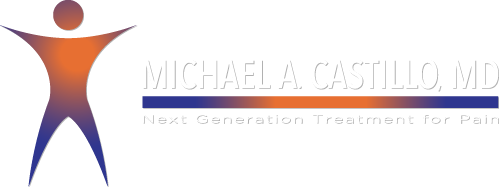What is Degenerative Disc Disease?
Degenerative Disc Disease (or DDD) is caused by degeneration of the discs in the spinal column. Age can cause this, but most of the time it is cause by some sort of trauma to the spine. People with bulging or herniated disc almost always have this disease, as well as people with Scoliosis.
Symptoms range from person to person as well as the particular location of the spinal injury. People with lower back injuries can experience numbness and tingling in the legs and buttocks. The symptoms can also get as severe as temporary paralysis in the legs or a particular leg. Someone with upper back pain can experience headaches, numbness and tingling of the neck and arms (or arm). Muscle spasms, memory loss, and weakness in the limbs are also possible symptoms.
In some cases, DDD has been seen as a hereditary disease. However, not all doctors will agree on this and there have been no conclusive studies done to prove one way or the other.

What is chronic pain?
Chronic pain is pain that extends at least 6 months after the initial injury. The pain can be intermittent or constant. Only a doctor can truly diagnose someone with chronic pain. If you believe you suffer from chronic pain, consult with your doctor immediately.
Degenerative Disc Disease Treatments and Procedures
Treatment for DDD can be somewhat complicated. Most doctors will start you on physical therapy and pain medications to see if some of the pain is alleviated. Others might try steroid injects at the points on the discs that are messed up to try to directly alleviate the pain.
If these methods do not work, your doctor might recommend surgery. They can perform a spinal fusion, place rods into your spinal column, and a few other alternative surgery methods. Surgery is entirely up to you and you should not feel pressured by your doctor to have surgery unless your ailment has become life-threatening.
Acupuncture, herbs, pool therapy, messages; all of these are other methods to look into and see if they’re right for you. Check with you insurance and see if they cover any of these alternative methods. Some insurances will pay for them if you have a doctor state that he or she believes you could really benefit from such methods.
Review every option available to you with your doctor. Talk to your family about these options and see what best fit your lifestyle. Also, making simple lifestyle changes can make a world of difference in your pain and how you handle it.
Getting Support
There are MANY ways to get support for DDD and back pain. Ask your doctor if any local hospitals sponsor support groups related to your ailment. There are also several online support groups (check the links to the left). Keep family and friends informed on your health so that you can gain their support and help through the pain.
Continue reading the full article for treatments and exercises from CalorieBee.

